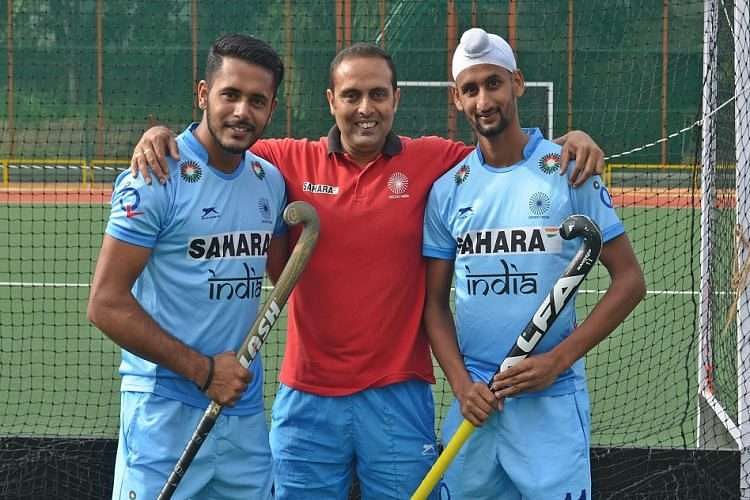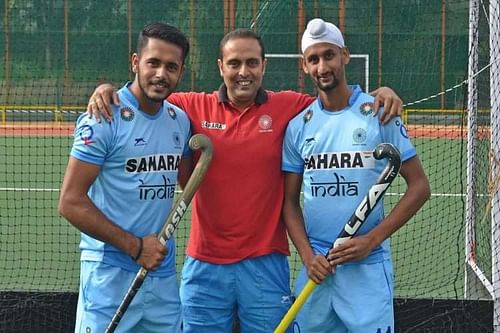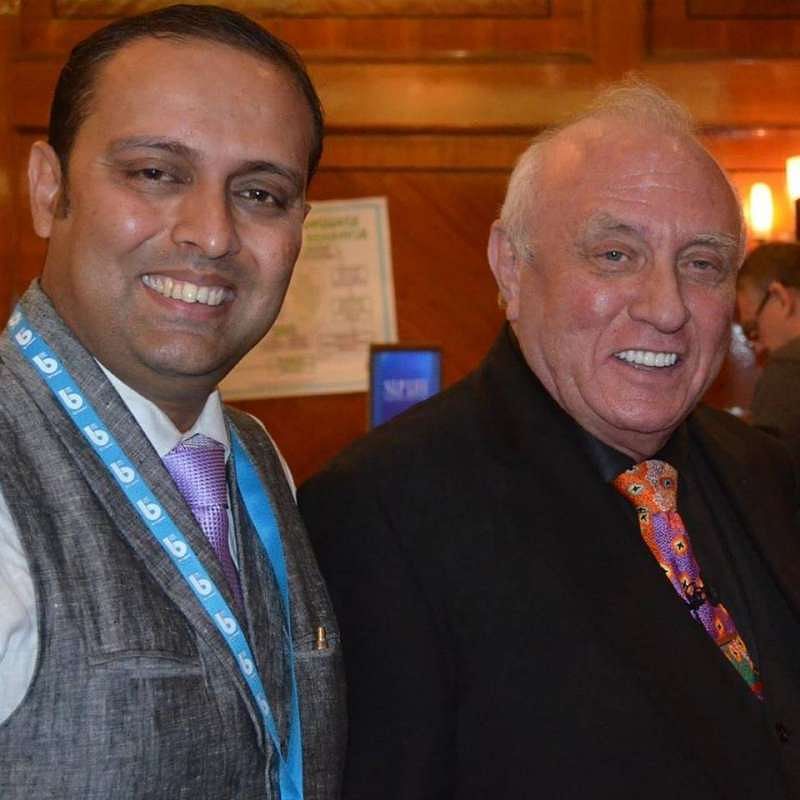
Mreenal Chakraborty - The man building Indian sports' mental fortitude

The Indian Cricket team was down and out. The leadership of Sourav Ganguly had been moulded into one that believed that it was closer to the World Cup than any other since 1983. However, leading up to the grand event, the preparations were nowhere near satisfactory.
An ODI series loss to West Indies was followed by a disastrous tour of New Zealand. And the final nail in the coffin was put in by their disastrous outing against Australia in the second game of the World Cup. The SuperSport Park at Centurion witnessed a shambolic performance by a tepid Indian batting line up that was bereft of confidence and stripped of belief.
However, because of the presence of Sandy Gordon, one of the most renowned sports psychologists, the slide was halted before the campaign became a shipwreck. The team pulled together and pulled themselves up. What followed was a blazing run of glory that saw India eventually end runners-up at the coveted tournament.
Sports psychology has long been neglected in Indian sports and while we have built up fierce competitors that can take on the best of the world, we have failed to build their mental aptitude and helped them believe that they can truly take on everything. And last summer, the country paid the biggest price.
“India is filled with potential – potential world champions. But when they get close to the target, they get flummoxed. They haven’t been there before and the mind starts wandering. It’s not all physical ability in sports anymore. With expectation mounting, the mind plays a big role. Before anything, you have to believe that you can. Sadly that’s where our athletes get lost,” laments Mreenal Chakraborty.
The name of Mreenal Chakraborty is not one that will make the headlines at the back page let alone the front one. In this day and age – the silent guardian – prepares the team from threats that loom far away from what meets the eye. A sports psychologist by profession, it’s people like him who are the ones we need and often neglect. They are the ones who instils the belief that our stars can truly champions before they ever reach the mark.
“To think you can do it is half the job done,” is a common phrase known to all and sundry. But knowing is not all. Believing is what matters and that is where he comes in.
Indian sports’ big stage
Roll back a year from now. India was brimmed – brimmed with expectations. The Rio Olympics was around the corner and it was supposed to be a watershed Olympic. The country was sending its biggest contingent that included some world champions, some hopefuls, some veterans looking to swing back the years, and with them a billion hopes and wishes.
For the few days the Olympics was on, hope was in the air. An expectant nation switched on the TV sets each night praying for one of their champions to turn those hopes into a reality. However, with each passing day, the country got used to the voice of the commentator lamenting as one hopeful athlete after another bit the dust. In fact, it was not until day 12 of the Olympics that the Indian flag finally unfurled and was seen hanging from the terraces.
Sakshi Malik claimed an unlikely bronze in wrestling and was soon followed by India’s silver lining when PV Sindhu stood on the podium, one step below Spain’s Carolina Marin after stretching the World Champion to the fullest.
A tragedy that wasn’t supposed to be
But before they could go to the world’s biggest sporting carnival across the Pacific in Brazil, there was the small thing of filling out forms. The athletes had to write down their goals for the Olympics; it could be anything – setting a personal best, qualifying for the finals or clinching a medal.
In the end, when the forms were counted, it was found that 20 athletes had set sail with the hope of garnering a medal for India. The reality, however, in stark contrast, brought us only two.
So what happened? Where did we lose it all? In layman’s term, our athletes choked. There were cries and then outcries. The media sympathised whilst having a field day. Social media was abuzz but the tone was sadly a negative one.
And somewhere, we left the athletes in the shadow again. It was an institutional failure.
A real silver lining

2016, however, was not all dark and gloomy on the sports front for India. The Indian cricket team was doing well, barring their world T20 campaign which promised so much just to go down in flames at the semi-finals stage.
The Kabaddi team and the game as a whole reached a new frenzy when the World Cup was underway.
But the biggest hurrah was saved for Hockey. Now, that’s a line that hasn’t been heard in years and maybe decades. The occasion, however, was just that special.
The city of Lucknow erupted into a frenzy at the sound of a hooter on 18th December 2016. India had finally done it – winning the Junior World Cup after a period of 15 years.
Whilst, many might think the rise was sudden, the truth, however, was totally different. The foundations for this success had been laid well ahead. Harendra Singh, the coach of the team oversaw the team for over a year and within this time he made sure that the team was prepared not only physically but also mentally to take on the world’s best.
Enter Mreenal Chakraborty. The Mental Toughness Trainer of the Indian Junior national hockey team had the unenviable job of touching the intangibles. To embed within the team a belief that they were certainly the best.
A path less trodden
“We dream the same dream. We think the same thing. We are a dream team. We are the Indian team. We are a champion team. We are bound to win.”
The above motto was engraved into the hearts of the Indian junior team. It was in their mind and soul, and surely enough by the end of the Junior World Cup, they had shown that they truly were a champion team.
A sportsperson in heart and soul, Mreenal Chakraborty also had a dream of wearing the Blue of the Indian national hockey team once. Having started his hockey career quite early, Chakraborty showed potential and caught the attention of scouts.
A batchmate of Dilip Tirkey at SAI, he was quickly roped in by the Railways.
“My dream was to play for my country. But that never came true. I think I gave it a lot but somehow I guess I was not as focussed as I needed to get to the big stage,” said the now master of the mind.
His playing days were soon brought to an end when Chakraborty injured his right knee and ruptured both the ligament as well as cartilage. However, that proved to be a turning point in his life.
“I was lost at that moment. Hockey was all I know and it was slipping away. But thankfully at that point of time, my life was changed by my spiritual guru, who got to know about my passion for sports.
“It was under his guidance that I decided to take a leap into the field of ‘sports motivation’ and ‘youth motivation’. And that was the direction I decided to take my life towards. I wanted to serve sports as well as the country and this provided me with the perfect platform,” quips the 42-year-old.
Chakraborty then enrolled himself at Cambridge Univerity where he researched on performance management and how motivation works in the field of sports with the help of mental and spiritual quotient. Under the renowned Richard Bandler (whose influence in the world of sports has been evident on the likes of Lionel Messi, Usain Bolt and Michael Phelps), Chakraborty learnt the science of Neuro-linguistic programming (NLP).
“This is something India and Indian sports, in general, haven’t taken much seriously till recently and our performances at the big events are a testament to this,” says a disappointed Chakraborty.
Following his fine work in the UK for which he became the first Indian to win the 10 Trimo International Award from Slovenia (for his research paper – “How motivation enhances Performance through Emotional Quotient and Spiritual Quotient”), Chakraborty was offered a chance to continue his work at the University of Mainz in Germany. But his want to work towards working for the country led him back to the nation.
The Junior World Cup success
After coming back to the country, he started working with the women’s national football team. After working with a number of different associations and players, two and half years ago, Harendra Singh roped him in to build the mental aptitude of the youngsters through NLP.
“We have seen the cricket team hire sports psychologists in the past and the result these days are in front of you. And this is the kind of transformation I wanted to see in the hockey world,” says Chakraborty. “Whatever we had done in the past was without the application of sports science.”
”I team NLP and it’s a method of training your brain that is undertaken by all the big stars of the world including champions like Michael Phelps.”
And it certainly did work. Time and again we have seen our stars, especially in the hockey field, falter at the most crucial of moments. However, in the Junior World Cup, at every time of asking, the Blueshirts’ mental fortitude stood the test.
Whether it was the come-from-behind win in the quarterfinals against Spain or the win on penalties over Australia in the semis – the young boys in blue kept their cool and brought positive results. Their limbs didn’t give up as the mind was clear, all thanks to their brilliant conditioning.
The way forward
But Chakraborty doesn’t want to stop here. He is working with athletes and sports bodies around the nation and wants to really bring out the true potential in them. He has now been summoned by the Table Tennis Federation of India to work with their players for the upcoming Asian Games and Commonwealth Games.
He will also be working with TATA sponsored archers, Dipika Kumari and Jayanta Talukdar, regarding their mental conditioning.
His method has been appreciated by many including the likes of Indian sporting stalwarts like PR Sreejesh and Sardar Singh.
However, it’s not the same everywhere.
“I have been met with rejections as well. Some well-known athletes, whose name I can’t disclose have rejected the idea of opening up to me. I have also been asked to do short term projects.
“But it just doesn’t happen like that. It’s only after an emotional connect can I truly put in a change within a player. They may be fearing getting judged by a stranger. So I have to get that trust factor going if I and the player together can make a real change.
“I don’t have a magic wand. And that is something people around sports in India need to understand.”
The need for sports science and sports psychology in today’s modern day is still pretty underrated. However, it is something that is getting recognition with each passing day as we start to realise that we have to build players’ ability to handle the tough situations.
And as we go forward, Mreenal Chakraborty hopes to get a helping hand in his fight.
“I hope ex-players get involved in sports psychology as well. People used to use the services of mere psychologists before - people with no knowledge of sports. The branch of sports psychology is a niche field. And people are slowly realising that. I hope that the ex-players get involved in the psychological coaching of the sports stars of tomorrow.
“They have tons of experience and have faced these challenges better. So I hope this facet of the sports is taken seriously by the former Indian players. We need them as well."

